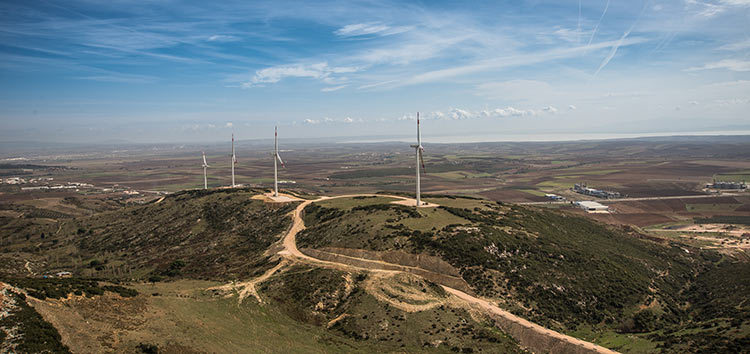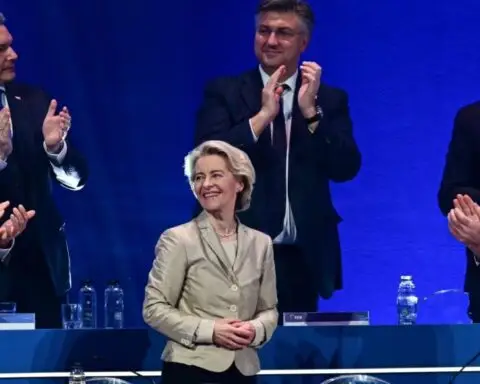This is likely to be a game-changer for global value chains and climate policy, putting significant decarbonisation pressure on EBRD countries of operation and spurring more climate ambition outside Europe as the EU seeks to ensure a level playing field for its industrial sectors.
Exporting countries to the EU will need to consider the CBAM implications for their own climate policies in order to remain competitive.
Turkey, the EU’s sixth largest trading partner, is already considering the potential impact on its industries. Turkey’s iron, steel and cement production – among the world’s top ten – and its glass, ceramics and plastics industries – which rank in the top five of the EU in terms of trade – may be affected.
Carbon pricing and related carbon market activities could act as an important risk management tool in anticipating these developments with greater urgency. The EBRD is working with Turkey in multiple ways to strengthen Turkish interest in carbon pricing and contribute to an enabling environment for a scaled-up domestic carbon market.
To foster an informed debate about the monetary implications and transitional risks for Turkish exporters to the EU, the EBRD is supporting the Turkish Ministry of Environment and Urbanisation with an impact assessment study. The results of the study are expected by mid-2021.
To strengthen Turkish interest in carbon pricing and contribute to an enabling environment for a scaled-up domestic carbon market, the EBRD, a pioneer in climate finance, is providing capacity-building support.
The EBRD’s Mid-size Sustainable Energy Financing Facility (MidSEFF) Carbon Market Development Support Programme offers three levels of support.
On a national level, this means policy dialogue. The programme supports carbon market development in Turkey by promoting initiatives that can further increase participation of sovereign and private sector actors in the national and international carbon market, including advising the Turkish government on the impacts of CBAM.
At bank level, the support consists of helping Turkish banks develop carbon market services. Banks are well positioned to help existing and new clients manage the risks and opportunities created by carbon markets. The programme trains Turkish partner banks across a range of carbon market activities, including project origination and finance, and trading and brokerage of carbon credits.
Finally, at project level, the EBRD programme is supporting the carbon asset development process. The programme delivers technical assistance to renewable energy and energy efficiency projects financed under MidSEFF that are eligible for carbon financing.
As of 2021, the programme has supported the development of several carbon projects registered under independent carbon standards such as the Verified Carbon Standard the Gold Standard.
Projects include the Sena hydropower plant – two run-of-river hydroelectric generators, expected to generate 68 GWh per year of renewable energy. Replacing fossil fuel energy sources will save an estimated 38,000 tonnes of carbon dioxide. The project, in a poor region, will provide financial and other support to local communities.
At the Edincik plant on the Sea of Marmara, 23 wind turbines will generate 180 GWh of renewable energy a year, saving 106,000 tonnes of carbon dioxide a year. The project will also aid social and economic development through education, sanitation, job creation, technology transfer and improved agricultural production.
As part of the bank-wide carbon neutral initiative, the EBRD purchased carbon credits from both projects to reduce its annual environmental footprint and offset GHG emissions resulting from its Annual Meeting in 2016 and business operations in 2017.
In addition to this support, the EBRD’s updated turkishcarbonmarket.com website provides a comprehensive overview of the current state of play of Turkish carbon market developments. It covers the role of carbon markets in the COVID-19 recovery as well as the implications of the EU’s CBAM innovation.
It discusses the impact of the international carbon offsetting scheme for airlines, CORSIA, which aims to curb aviation’s impact on climate change by making airline operators buy carbon credits from the carbon market, on a voluntary basis from this year but becoming compulsory by 2027.
And it highlights opportunities under Article 6 of the Paris Agreement. It also contains a library with a wide range of publications and presentations on carbon markets with the aim of providing a central point for information for the Turkish carbon market community and abroad.
The Turkish Carbon Market Development Support programme is supported by the EBRD Shareholder Special Fund.






